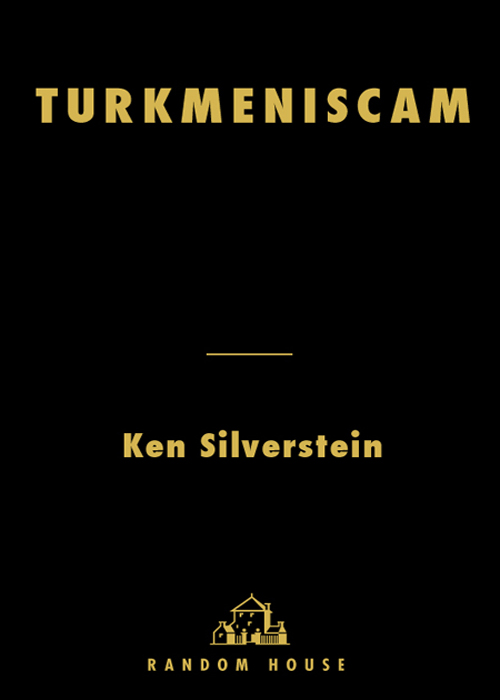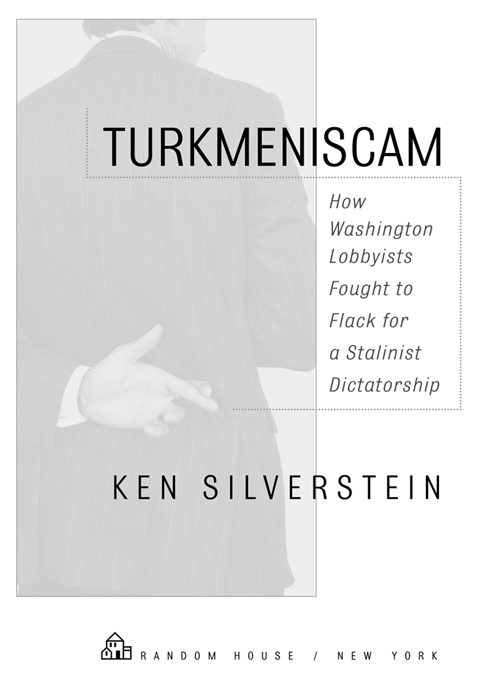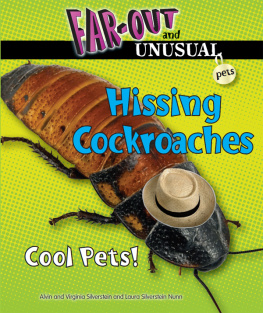

TURKMENISCAM
CONTENTS
PROLOGUE
The Origins of a Journalism Sting
ONE
A Short History of Foreign Lobbying
TWO
Finding the Right Client: Make Benefit Glorious Nation of Turkmenistan
THREE
K Street: The Fourth Branch of Government
FOUR
Strike a Pose: Picking the Targets and Constructing a Cover Story
FIVE
At APCO: Witness at the Birth of Turkmen Democracy
SIX
Cassidy & Associates: The Belly of the Beast
SEVEN
Aftermath: The Death of Undercover Reporting
EPILOGUE
Turkmen Whitewash: The Dream Lives On
TO MY CHILDREN, SOPHIA AND GABRIEL
AUTHORS NOTE
My conversations with the lobbyists during our in-person meetings rambled across various topics, as conversations tend to do. In a few instances here, I merged the threads of the conversations.
PROLOGUE
The Origins of a Journalism Sting
I N THE FALL OF 2006, PUBLIC ANGER WAS RUNNING HIGH OVER political scandals involving influence peddler Jack Abramoff and former congressman Randy Duke Cunninghamalready inmate 94405-198 at the Federal Correctional Institution in Butner, North Carolina, where he was in the midst of serving an eight-year prison term for accepting bribes of cash and hookers from businessmen. As Washington editor of Harpers magazine, I was searching for a story that would dramatically expose the power that lobbyists and money continued to wield in the nations capital, despite exposure of Abramoff, Cunningham, and a host of other Beltway miscreants.
After much pondering, I hit upon an idea that seemed perfect, though a bit unconventional: I would create a phony defense company (peddling a product of dubious utility), retain a well-connected lobbyist, curry favor with a key member of Congress, and seek to win a big fat federal earmark. The polite term for political pork, earmarks are itemized awards that are quietly attached by members of Congress to the massive bills that fund the federal government. The entire process had become so willfully murky that abuse was no longer the exception but the rule. Indeed, earmarking had been at the heart of several of the recent political scandals. Cunningham, for example, had a bribe menu that spelled out how much money he expected from businessmen for whom he won government awards.
In recent decades, earmarking has become an industry, and many lobby shops specialize in winning them for clients. An especially attractive feature for those private interests seeking earmarks is that they are awarded on a noncompetitive basis and recipients are not required to meet any performance standards. In other words, companies seeking earmarks need not demonstrate that their project or product actually delivers a useful good or service; the key to success is not efficacy but lining up the requisite political support. What better way to demonstrate that Washington was for sale than to win a congressional earmark for my phony firms phony product with the help of a powerful lobbyist?
First, I had to clear the approach with Harpers editor Roger Hodge and senior editor Bill Wasik, who handled my stories. Undercover reporting was long an accepted practice in American journalism, but in recent years it has largely fallen out of favor. The decline can be traced in part to the transformation of journalism from a profession for cynical, underpaid gumshoe reporters into (in Washington at least) a highbrow occupation for opinion-mongers, Sunday talk show yakkers, and social climbers. As punditry has replaced muckraking as the professions highest calling, undercover reporting has been abandoned as too embarrassing and undignified. No one in a newsroom today would dare suggest that a reporter get information through any kind of subterfuge, William Gaines, who three decades ago worked on undercover assignments for the Chicago Tribune, wrote in a 2007 essay titled The Lost Art of Infiltration. Such thoughts made the newspapers lawyers very nervous in the 1970s, and today I fear they would respond with derision. Today there is something called ethics. In Chicago in the 1970s that was thought of as a poor excuse for not getting the story.
While major American newspapers have dropped undercover reporting, the TV networks and some magazines, Harpers among them, still allow it under some circumstances. In the case I proposed, I believed the grounds for going undercover were compelling and clear (more on this in ). Hodge and Wasik agreed and authorized me to proceed, even though they knew that if and when a story was published, wed get heat from some quarters of mainstream journalism for employing undercover tactics.
I warned them as well that there were a number of serious risks to the project, and no guarantee of success. The lobbyists I contacted might have moral qualms about seeking money for an unknown, potentially shady company like the one I envisioned and decline to take the bait. That, admittedly, was improbable, but I also had doubts about my ability to convincingly play the role of a defense contractor, and the whole sting would fizzle if I aroused the suspicions of the lobbyists I contacted. And even if we got past that hurdle, I could be busted at any point between the launch of the plot and publication of the story. For example, the lobbyists would almost certainly discover something was amiss if they performed any sort of due diligence background search on my phony firm, or I might easily blow my cover with an off-note remark that revealed me as a poser, or some other amateurish misstep. In a worst-case scenario, a lot of time, planning, and money of Harpers would go down the drain. My editors were prepared to run those risks as well.
Excited by the possibilities, I sketched out a plan. Step one would be to create a fake company, which would have a business address in the Virginia suburbs near Washington, an area that is home to thousands of small defense contractors. I selected for my firm the nondescript name of ACR Engineering, whose initials could stand for either Advanced Communications Research or Astonishing Congressional Rip-off. The latter seemed more apt in this case.
I also needed to come up with a product or concept ACR was seeking to peddle to the Pentagon. One military expert I spoke with said the appropriations process was so crooked that any harebrained scheme would do as long as I retained a lobbyist with the right political connections. Theres a huge pool of money available for defense-related research and development projects, he told me. Tell your lobbyist you want to outfit a flock of pigeons with cell phones. That will work. This seemed farfetched to me, so I tentatively settled upon a device that was capable of destroying roadside bombs.
Roadside bombs, which had killed so many American soldiers in Iraq and were becoming an increasing threat in Afghanistan, was a genuine priority. In late 2003, the Pentagon established an IED (improvised explosive devices) task force, with a $3 billion budget, that was charged with researching and developing projects to reduce the toll from IEDs used by insurgent groups. With a Pentagon honeypot this size, it was inevitable that a number of companies were seeking to cash in with products of little merit.
Consider here the case of Ionatron, a homeland defense firm with operations in Arizona and Mississippi, created in 2002 out of the shell of a lawn-care company called U.S. Home & Garden Inc. The founders of Ionatron included Robert Howard, whom the
Next page













